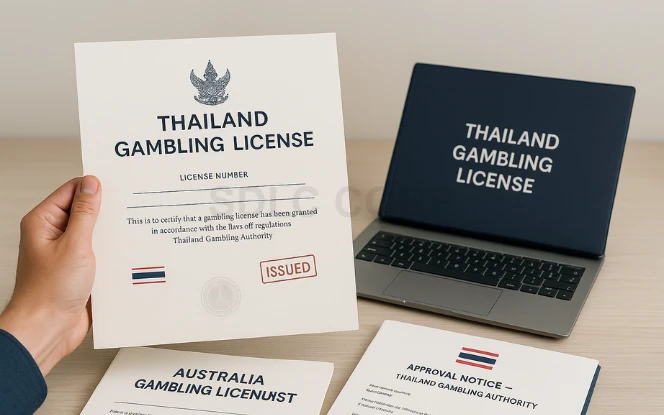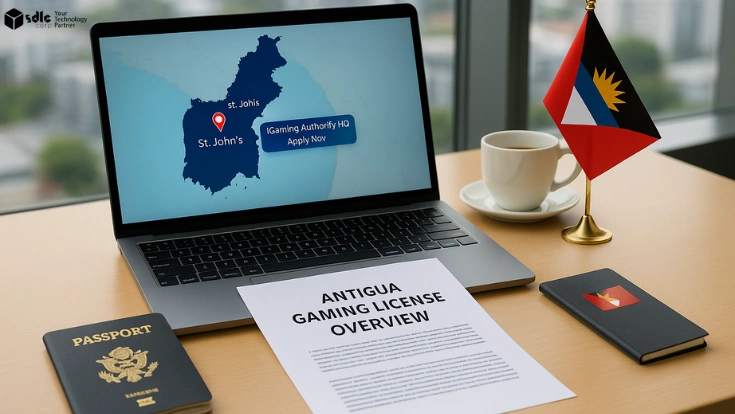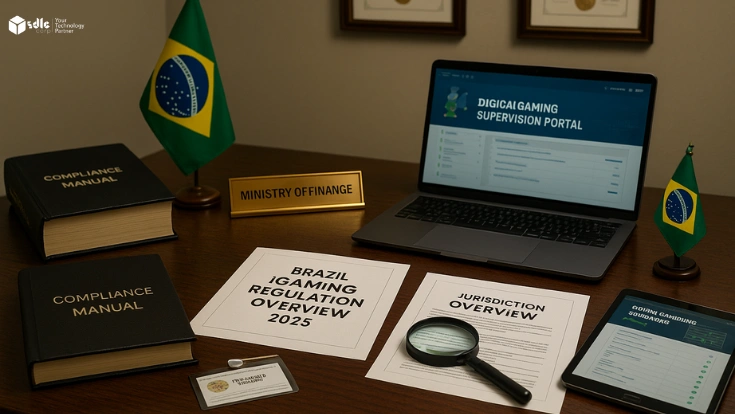Introduction
Gambling in Thailand is tightly regulated and mostly prohibited under the Gambling Act B.E. 2478 (1935). While many entrepreneurs are exploring ways to serve Thai players, it’s essential to recognize that licenses for commercial casinos or online gambling are extremely limited. Most operators rely on offshore gambling licenses issued by jurisdictions like Curaçao, Malta, or the Philippines.
This guide walks you through what you can legally apply for in Thailand, how to register a business, and how international licensing strategies work.
What Is a Gambling License in Thailand?
A gambling license is an official authorization from the Thai government that permits a business to operate games of chance, betting activities, or gaming software platforms.
In Thailand, gambling is regulated primarily under the Gambling Act B.E. 2478 (1935) and the Penal Code, which criminalizes most forms of gambling unless explicitly exempted by law. The government grants limited permits for state-run lotteries and horse racing, while commercial casinos remain illegal.
For online gambling operators, the situation is even more restrictive Thai authorities consider most online gaming activities unlicensed. Despite this, a growing number of investors are exploring legal frameworks and compliance strategies to prepare for potential legalization or to serve Thai customers from regulated offshore jurisdictions.
Step 1: Understand the Legal Landscape in Thailand

Before you even think about submitting an application, it’s critical to fully understand what is and isn’t legal in Thailand:
Permitted Gambling Activities:
The Government Lottery (operated by the Government Lottery Office)
Horse race betting (at authorized racetracks only)
Prohibited or Restricted Activities:
Casino gaming (roulette, blackjack, baccarat)
Slot machines
Online gambling and sports betting (other than horse racing)
Enforcement has intensified in recent years as authorities crack down on unlicensed operators. Penalties for running or promoting gambling operations without approval can include:
Large fines
Confiscation of equipment
Imprisonment for business owners and participants
Citation: Ministry of Finance Thailand
For most companies, a Thailand gambling license is not commercially feasible, and offshore licensing is the primary legal route for serving international users.
Step 2: Decide the Type of Game You Want to Offer

The type of gambling product you plan to operate dictates your entire licensing strategy:
Casino Games:
Fully prohibited within Thailand. No licenses are issued for traditional casino tables.
Online Gambling:
Considered illegal under current Thai law, with no provision for commercial licensing.
Lotteries:
Monopolized by the state. You cannot run private lotteries.
Horse Race Betting:
Permitted only at government-approved tracks and under tight supervision.
Skill-Based or Promotional Games:
Still a grey area but can still be penalized if determined to constitute gambling.
Important: If your business model involves any of the above, you will likely need to incorporate abroad and geo-block Thai players to reduce legal exposure.
Step 3: Choose the Right Province or Jurisdiction for Licensing

Although the Gambling Act is national law, local authorities and provincial police have discretion over enforcement and event-based permits.
Commonly Considered Locations:
Bangkok: Administrative hub, home to the central licensing offices.
Chiang Mai: Occasional permissions for charity events.
Pattaya: High tourism traffic but strong enforcement of gambling bans.
Step 4: Register a Business Entity in Thailand

If you plan to pursue permitted activities like lottery sales or event-based gaming, you’ll first need a Thai-registered company.
Typical Requirements:
Minimum of three promoters (founders)
At least 51% Thai national ownership (in most sectors)
Registered office in Thailand
Minimum capital requirements
Step 5: Prepare Your License Application Package

If you are applying for a specific legal exception (e.g., horse race betting or a charity event), your application must be thorough and fully documented, including:
Certified copies of all incorporation papers
Shareholder and director identities
Business plan explaining your activities
Anti-money laundering and responsible gambling policies
Details of technical systems, payment methods, and record-keeping
Because authorities rarely approve new gambling activities, incomplete or vague applications are rejected without consideration.
Step 6: Submit Your Application to the Appropriate Thai Authority

Your application destination depends on the scope of your activities:
Ministry of Finance: General gambling policy oversight
👉 Ministry of Finance Official WebsiteGovernment Lottery Office: Lottery licensing and distribution
👉 Government Lottery OfficeRoyal Thai Police: Local enforcement and event-based permits
Applications must be filed in Thai and comply with all document formatting requirements.
Step 7: Pay the Application & Licensing Fees

Thailand’s licensing costs vary widely based on activity:
State Lottery License Fees:
Set by the Government Lottery Office
Horse Racing Betting Fees:
Typically regulated at the provincial level
Event-Based Gambling Permits:
Short-term license fees for specific events
Estimated costs:
Application fees: THB 10,000–50,000 depending on activity
Annual licensing fees: Variable
Compliance and audit expenses: Additional
You should also budget for:
Legal counsel fees
Office registration costs
Ongoing tax liabilities
Step 8: Undergo Compliance, Technical & Background Checks

Thai authorities conduct thorough due diligence, including:
Criminal background checks on shareholders and directors
Review of gaming software integrity and fairness
Verification of anti-fraud and player protection measures
Inspection of business premises (if applicable)
Common pitfalls:
Incomplete shareholder disclosures
Unlicensed or non-compliant gaming software
Failure to demonstrate sufficient capital reserves
To succeed, maintain complete transparency and prepare all documentation proactively.
Step 9: Receive Your Thailand Gambling License

Important Clarification:
While you can complete all the above steps, it is critical to understand that approval for commercial gaming is extremely limited. Even applications meeting every criterion may not be granted due to national policy restrictions.
If you are granted any form of license (usually only event-based or state distribution), you’ll receive:
A specific permit certificate with activity scope
Validity period (often very short)
Strict reporting and renewal obligations
Step 10: Maintain Ongoing Legal & Operational Compliance

Holding a Thailand Gambling License isn’t a one-time achievement it requires constant vigilance:
Tax Compliance:
Corporate income tax
Gambling tax (where applicable)
Withholding tax on winnings
Regulatory Reporting:
Regular submission of revenue reports
Audited financial statements
Notifications of any material business changes
Player Protection:
Anti-money laundering procedures
Responsible gaming programs
Data privacy safeguards
Non-compliance can result in:
Fines
License suspension
Criminal prosecution
Receive expert guidance at every stage of your gaming license journey from documentation to approval. Our legal and compliance specialists make the process seamless across top jurisdictions. Need assistance? Talk to our team
International Comparison: Why Thailand?
If you’re evaluating ASEAN gambling licenses, it’s worth comparing Thailand to regional alternatives:
| Jurisdiction | Key Advantages | Challenges |
|---|---|---|
| Philippines (PAGCOR) | Legal online gambling framework | High compliance cost |
| Curaçao | Affordable license | Less EU recognition |
| Malta | EU credibility | More expensive |
| Thailand | Large market | Severe restrictions |
Thailand is less accessible legally, but strategic planning may position your business for future liberalization.
Tips to Get Your Thailand Gambling License Faster
Work with a Specialized Thai Gaming Law Firm: They’ll navigate the bureaucracy and minimize delays.
Prepare a Comprehensive Business Plan: Authorities expect detailed, realistic forecasts.
Establish Clear Ownership Structures: Avoid shareholder ambiguity.
Invest in Compliant Technology: Use certified gaming platforms.
Stay Informed: Regulations evolve subscribe to updates from the Ministry of Finance and legal newsletters.
Future of Gambling in Thailand
The Thai government is actively studying legalization proposals for integrated resorts and regulated online gambling. Key developments to watch:
Potential new casino zones in tourist hubs
Tax policy reforms
Digital payment regulation updates
Growing pressure to legalize online gaming to capture tax revenue
Industry analysts expect significant changes by 2026–2028, creating opportunities for early entrants.
Also Read: How to Start an Online Casino in Thailand?
Conclusion: Your Gateway to Thailand’s Gambling Market
Make sure you consult a qualified legal advisor to guide you through the process. Choosing between a Thailand casino license and an iGaming license Thailand regulations require depends on your business model and target audience. Compliance at every step will help you avoid penalties and build trust with players.
If you’re considering launching an online casino, sportsbook, or other gaming platform targeting Thailand, consult an experienced legal advisor today.
SDLC Corp helps you secure a Thailand Gambling License with complete support for company setup, regulatory compliance, and applications to the relevant Thai authorities, so you can launch your gaming business legally and confidently.
FAQ's
Is gambling legal in Thailand?
Most forms of gambling are illegal in Thailand under the Gambling Act B.E. 2478. Only state-run lotteries and licensed horse race betting are permitted. All other gambling activities, including online casinos, are prohibited unless explicitly authorized by the government.
Can foreigners apply for a gambling license in Thailand?
Only via a Thai-majority company and exclusively for limited activities (e.g., horse racing betting). Online gambling licenses are not issued domestically.
How long does it take to get a gambling license in Thailand?
For permitted activities like event-based gaming permits or lottery-related distribution, the process can take several weeks to several months, depending on the application’s complexity and the reviewing authority.
What are the penalties for operating without a gambling license?
Running an unlicensed gambling business in Thailand can lead to severe penalties, including hefty fines, imprisonment, and confiscation of equipment. Authorities actively enforce these laws both online and offline.
Can foreigners own a gambling business in Thailand?
Foreign ownership is heavily restricted. Thai nationals must hold at least 51% of most business types, and all gambling activities require strict compliance with local regulations. Partnering with a Thai legal advisor is essential.
Can SDLC Corp help with licensing?
Yes, SDLC Corp offers full support for feasibility assessment, offshore licensing, compliance advisory, and business formation.





